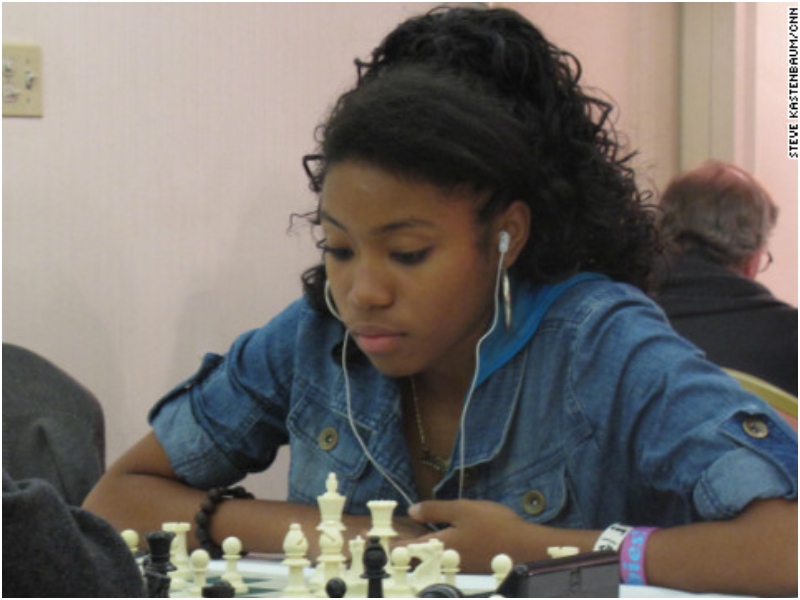Rochelle Ballantyne, a 26-year-old lawyer in New York, is driven to achieve the prestigious title of chess master – something no Black woman in the U.S. has done before. Her passion for the game was first kindled at age 8 by her late grandmother, who taught her chess to channel her high energy.
“I started playing chess when I was eight or nine years old. My grandmother taught me because she thought I was a really rowdy kid, and she thought chess would be a good way to sort of calm me down,” Ballantyne said.
As Ballantyne sharpened her skills over the years by competing in chess tournaments, she encountered racism and sexism along the way. She was often mistaken for “the help” at competitions or told she might “distract boys” – prompting advice that she should wear pants when playing.
“It’s never just been about chess. I don’t stop being Black once I sit down at a chess board,” Ballantyne said about the discrimination she has faced.
While passionately pursuing her goal of chess mastery over the past decade, Ballantyne has also been thriving academically. She was featured in the 2012 documentary “Brooklyn Castle” about a junior high school chess team, before going on to graduate from top colleges like Stanford and Columbia.
Now in her first year as a lawyer after graduating from New York University Law School, she continues to work tirelessly toward her chess dream – holding down three jobs and interning at the NAACP Legal Defense Fund while studying.
Ballantyne has come close to the master title several times in recent years, with her peak ranking reaching 2127. Players must hit 2200 to qualify as masters. According to Tony Rich, Executive Director of the St. Louis Chess Club, her consistency means she could likely reach the milestone rating as soon as this year.
When Ballantyne accomplishes her goal, she will make history as the first Black woman chess master. It’s an achievement she strives for to honor her late grandmother first and foremost.
However, Ballantyne has another driving purpose behind chasing the master title. She wants to blaze a trail for other young black girls to pursue chess and realize barriers can be broken.
“There are so many more Black girls, little Black girls playing chess now, and it’s so cool to inspire them,” Ballantyne said. “It’s an honor to inspire them – for them to see that there are other Black girls playing in this male-dominated, very White sport.”
Story Credit: First Blacks.

